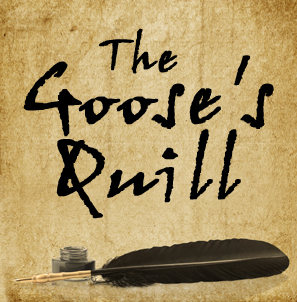I wrote this post before the attack on Charlie Hedbo. In light of the events in Paris, I think reflecting on the deeper purpose of writing is more relevant than ever.
We’re all creatives here, so I know this has happened to you: two completely unrelated topics slam together in your head and create a thought that makes you go “hmm.”
Topic #1: A writer friend lamented that many writers’ conferences seemed to feature marketing over craft these days. Personally, I feel that this will rectify itself after this wave of writers who were unfamiliar with marketing ages out and a new group of writers who “grew up” with marketing doesn’t need as much guidance. But there is a definite shift away not only from craft, but often from the purpose behind our writing.
Topic #2: So many scary and violent and crazy things happening in the world. Sometimes I despair of the world I am leaving for my young child. My husband and I discussed the helplessness most average citizens feel, and how powerless most people feel to change things. How many people long for a hero they can rally behind.
Thought: Maybe if we writers reclaim our purpose we will find that we are the heroes we have been waiting for.
Every writer writes because we have something to say. In fiction, obviously, we never want to be preachy or didactic, but we all have something to say. Even those who would say they only write to entertain have a specific worldview, a specific set of values, that permeate their work even if they don’t intend it.
Writers have a long history of being the voices in the wilderness—the ones who speak out against injustice or warn of dangers in the world. Thomas Paine rallied a new nation, Rachel Carson called out an industry poisoning our world, and George Orwell sounded the alarm against a dystopian future, just to name a few.
We live in a world where we are increasingly unable to talk to each other. Forgetting international tensions, the ability to talk about almost any subject without it devolving into an insult-laden screaming match is a lost art in America. Both sides cannot even hear each other, let alone consider a point of view different from their own.
But fiction writers are in the unique position of being between the two sides. We don’t argue—we present a story. A story of a person who may or may not be like the reader in their views, in their lives. This character takes a journey, and the reader goes with them.
The reader learns what the character learns. The reader gets to see a different perspective without being berated or told they are wrong. The reader gets to see what life is like for a person or community they have no experience with. They are presented with information, then left to make up their own minds about what to do with that information. There are studies that show fiction readers grow in empathy the more they read. In other words, reading opens readers’ minds and hearts to people and ideas outside themselves.
So it occurred to me that we writers might be the heroes this world needs to begin hearing each other again. To begin to realize that our differences are largely manufactured for political reasons. To realize the basic humanity in the “other.”
Perhaps one writer will change the world. Perhaps it will be our collective voices that change the future. But one thing is certain: we all have something to say that people need to hear. We have a reason for writing. We have a purpose.
We are the voices in the wilderness.



The Acceptability of Quitting Creative Arts
It’s possible to quit virtually anything in life. You can quit a job, quit school, quit smoking, quit drinking. You can even quit a marriage or being a parent. Some things are harder to quit than others. Some things are more socially acceptable to quit than others. Usually, ending a bad habit is good. Walking out on your kids, not so much.
My daughter wants to quit swim class. Because of pool repairs, it’s at a different facility, and she hates it there. The water is colder, the edge of the pool is harder to hold on to, and the locker rooms are chilly. She wants to stop until the pool is fixed. I told her no.
Why? Because sometimes necessary things in life are hard or unpleasant, but still need to be done. Because swimming is a survival skill she needs to learn. Because it is, after all, only 3 more weeks. She needs to stick to it, because she is still not a strong swimmer, still uses a floatation device sometimes. So we will finish this session and sign up for the next.
Then I started wondering, what if she had said she wanted to quit dance instead of swim? Truthfully, I would have told her she had to finish out the session—because she made a commitment and should honor it—but that if she didn’t want to sign up for another session, that was fine.
Then I wondered why the difference in my thinking. I am a creative myself, so you’d think I’d push her hard to stick with dancing, right?
I think several things led to my different conclusions. First, our culture does not value creative arts, and even though I am a creative, I have been influenced by our culture. It is so easy to quit a creative endeavor. In fact, we creatives are often encouraged to quit. To sideline our passion as a hobby. To do something more…worthwhile with our time.
Second, as a creative, I know that the worst thing I can do when the passion is gone is push too hard to get it back. If my daughter wanted to give up dance, I would let her because if she has lost the joy of it, why continue? Creative pursuits need to be followed because we want them and can’t do without them. Very few of us will see monetary gains from these pursuits, so if we find no joy in them, no inspiration, no fulfillment, then what’s the point?
Third, sometimes walking away from a creative art is exactly what you need to find out how much it means to you. We all get burnt out. Sometimes a break is exactly what we need to find the passion again. And if you find you can walk away and never look back, that art was never your true calling to start with.
Despite our cultural stigma that “nobody likes a quitter,” I think it’s more important to examine what you are quitting and why. After all, I’ve quit every job I’ve ever had in order to end up as a write-from-home mom. The key is knowing when quitting is a smart move vs. a lazy move.
So ignore cultural pressures if you can. Dreams are hard to come by. Hold on tight—but if you must quit, quit smart.
What do you think about quitting a creative endeavor? When is it wise to quit, if ever?